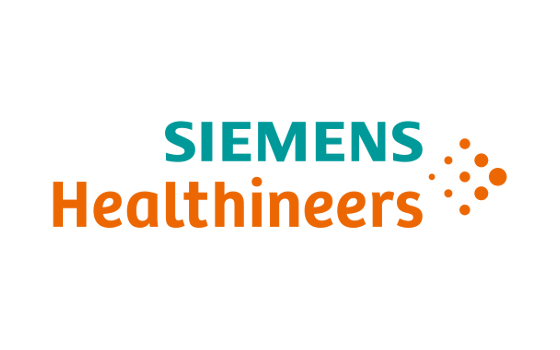 Manchester University NHS Foundation Trust (MFT) has selected Siemens Healthineers to enter a 15-year technology and strategic partnership. The Value Partnership includes the planning, installation, and maintenance of 222 pieces of critical medical equipment, with approximately 350 planned installations over the life of the contract. A dedicated on-site team will ensure the guaranteed technology performance and ease administrative processes for MFT by providing a single point of contact for all technology-related matters. The partnership also includes a training program for users in the imaging pathway. MFT will benefit from financial planning security over the contract period and increased availability of its technology fleet. The modern equipment is designed to improve patient care and meet growing demand for imaging as well as increase staff satisfaction and improve patient experience. This long-term partnership will enable the transformation of care delivery in the Greater Manchester area and all the communities that MFT serves. Staff will also be better prepared for future pandemics and infectious disease events. The contract is worth approximately EUR 140 million.
Manchester University NHS Foundation Trust (MFT) has selected Siemens Healthineers to enter a 15-year technology and strategic partnership. The Value Partnership includes the planning, installation, and maintenance of 222 pieces of critical medical equipment, with approximately 350 planned installations over the life of the contract. A dedicated on-site team will ensure the guaranteed technology performance and ease administrative processes for MFT by providing a single point of contact for all technology-related matters. The partnership also includes a training program for users in the imaging pathway. MFT will benefit from financial planning security over the contract period and increased availability of its technology fleet. The modern equipment is designed to improve patient care and meet growing demand for imaging as well as increase staff satisfaction and improve patient experience. This long-term partnership will enable the transformation of care delivery in the Greater Manchester area and all the communities that MFT serves. Staff will also be better prepared for future pandemics and infectious disease events. The contract is worth approximately EUR 140 million.
"This is so much more than a simple contract. It’s a 15-year Value Partnership, a relationship enabling us to provide the very best in care delivery for the people of Greater Manchester," states Catherine Walsh, Divisional Director of Imaging for MFT.
"Demand for our imaging services is increasing by 5 to 10 percent every year, yet we’ve had to reduce our throughput to deal safely with COVID-19. This new relationship gives us the confidence that we’ll be able to continue to invest in the latest technology with the flexibility to adapt it to our needs, now and into the future. All associated factors such as maintenance and budgeting are taken care of. Ultimately, the partnership will enable us to focus on delivering the best patient experience while at the same time helping us to attract and retain leading talent, and develop staff to unlock their full potential", says Walsh.
"We are pleased to enter this major partnership with MFT to support the transformation of care and drive modernisation and digitalisation of medical technology across their hospitals, directly benefitting patients in the Greater Manchester area," says Bernd Ohnesorge, President Europe, Middle East and Africa at Siemens Healthineers. "This Value Partnership represents one of the largest and broadest in scope that Siemens Healthineers has, up to now, engaged in Europe. It will also serve as an example of how innovative partnership solutions can transform care delivery for healthcare providers globally."
Manchester University NHS Foundation Trust is an NHS acute foundation trust that operates nine hospitals in Greater Manchester and is a leading provider of specialist healthcare services. It is the largest NHS trust in the UK, with revenues in excess of £1.8bn, over 2200 beds and more than 21,000 staff.
The collaboration with MFT is a Value Partnership, a long-term relationship that enables healthcare providers to optimize operations, expand capabilities and advance innovation. It draws on the company's entire Enterprise Services portfolio to add value beyond equipment. No two Value Partnerships are the same. Their design is driven entirely by the needs of the customer. A managed equipment service (MES) is a bespoke Value Partnership that provides: outsourcing of equipment ownership, risk and responsibility; future-proof access to modern, right-sized technology; value-added services that address the wider clinical environment and a one-stop, holistic solution in return for a simple, fixed unitary payment. Siemens Healthineers has established Value Partnerships with many Healthcare Providers around the world. Recent examples of Value Partnerships include Hamilton Health Sciences in Canada, the University of Missouri System in the USA, the Dallah Health Company in Saudi Arabia, and the Braunschweig Municipal Hospital in Germany.
About Siemens Healthineers AG
Siemens Healthineers AG (listed in Frankfurt, Germany: SHL) is shaping the future of Healthcare. As a leading medical technology company headquartered in Erlangen, Germany, Siemens Healthineers enables healthcare providers worldwide through its regional companies to increase value by empowering them on their journey towards expanding precision medicine, transforming care delivery, improving the patient experience, and digitalising healthcare. Siemens Healthineers is continuously developing its product and service portfolio, with AI-supported applications and digital offerings that play an increasingly important role in the next generation of medical technology. These new applications will enhance the company’s foundation in in-vitro diagnostics, image-guided therapy, and in-vivo diagnostics. Siemens Healthineers also provides a range of services and solutions to enhance healthcare providers’ ability to provide high-quality, efficient care to patients. In fiscal 2020, which ended on September 30, 2020, Siemens Healthineers, which has approximately 54,000 employees worldwide, generated revenue of €14.5 billion and adjusted EBIT of €2.2 billion.